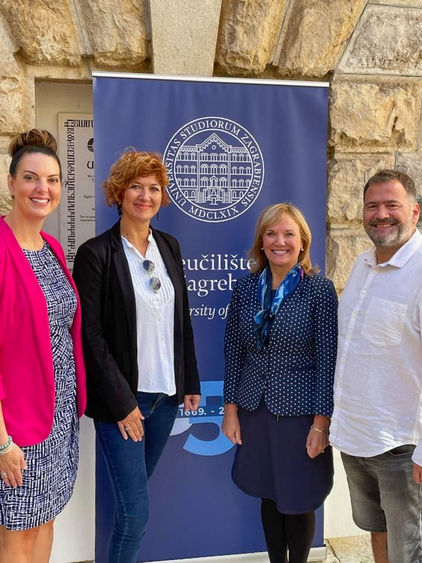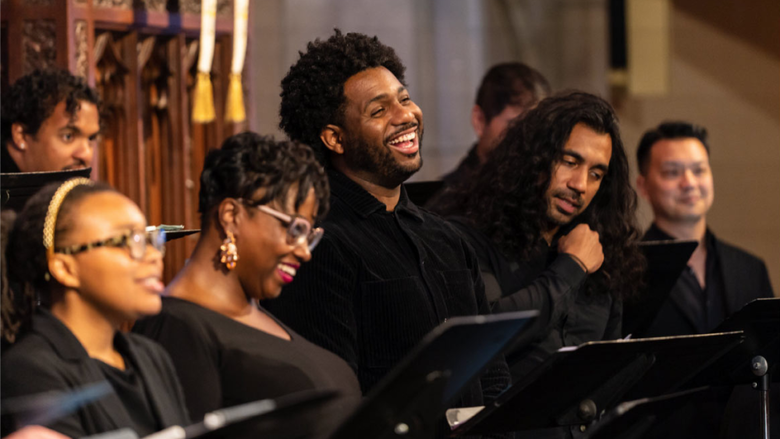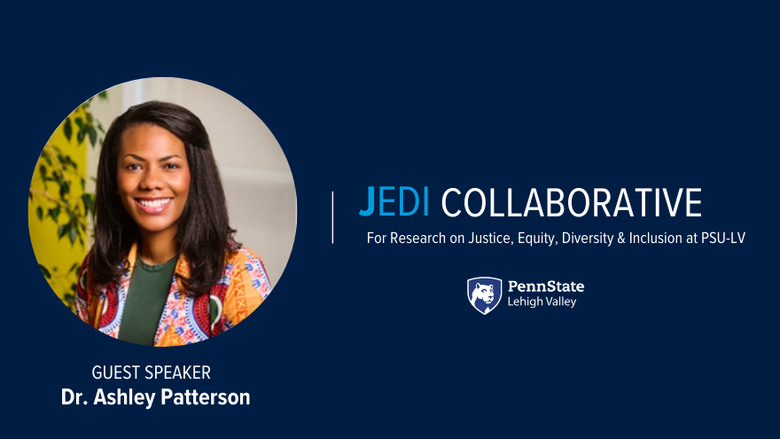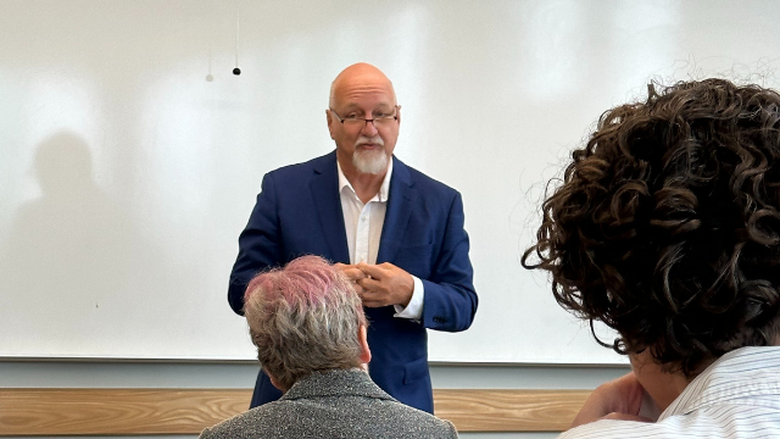
PSU-LV faculty presented at a conference focused on information disorder in time of crises at University of Dubrovnik, Croatia. (L-R): Beth Michalec, assistant professor of corporate communication at Penn State Lehigh Valley and Fulbright Specialist; Marijana Grbesa, associate professor of political science, University of Zagreb; Nichola D. Gutgold, professor of communication arts and sciences at Penn State Lehigh Valley and keynote speaker, and Domagoj Bebic, Head of the Strategic Communications Department at Faculty of Political Science, University of Zagreb
CENTER VALLEY, Pa. — For most of her career, Nichola Gutgold, professor, communication arts and sciences at Penn State Lehigh Valley has studied and written extensively about women in leadership. Through her research, she has found several examples where inaccurate, or disinformation, has damaged the reputations and careers of high-profile women.
This disinformation, as it pertains to powerful women, was the focus of Gutgold’s keynote speech, “The Most Dangerous Fake News? A Devaluation of Half the World” at the Information Disorder in Times of Crises conference at the University of Dubrovnik, Croatia, in September.
“For 20-plus years, I’ve been writing about women in nontraditional fields — particularly the areas of business, politics, government, where women have been lagging behind men in huge numbers. My question is, ‘Why are women lagging behind?’”
Gutgold cites issues such as more men not only running for office but winning elections, and how the media may have something to do with fewer women running for and being elected to political office. “It’s very hard to determine what’s ‘fake news’ and disinformation and how it influences people,” she said. “For women, there is so much online disinformation. Women of color, older and younger women are disproportionately marginalized.” Gutgold’s keynote touched on the many ways women are misrepresented, from lies printed in tabloid newspapers to altered and retouched photos. “That gets into the psyche of voters,” Gutgold said.
PSU-LV was also represented by Beth Michalec, assistant professor of corporate communication who presented “Re-envisioning Gates: Examining the Strategic Communication Implications of Leadership Changes in the Bill and Melinda Gates Foundation”, a close look at the world’s largest nonprofit.
Michalec’s talk was the culmination of a case study for her dissertation project. She is in Croatia as a Fulbright Specialist and the conference was the first activity for her slate of programming. “I have followed [the Gates Foundation] for a long time. I ran a nonprofit before I went into academia and fundraising was such a big part of what I would do. When you can take out the fundraising component and just focus on the work…I have always been very intrigued by what can be accomplished when you’re not ‘hustling’ to generate financial capital.”
Michalec’s presentation aligns with her research interests in corporate citizenship — essentially, how businesses of all sizes play a role in improving society and the natural world. “It’s interesting to me because corporate citizenship has taken on so many forms. It used to be called ‘corporate social responsibility’, but it’s not just that…we’re looking at different ways organizations are trying to make a positive social impact. You must have a buy-in to create change, and how do you build those relationships and engagement?”
Michalec is in Croatia for eight weeks. The conference was Gutgold’s third visit to the country. She previously visited the University of Zagreb in 2017 as part of a faculty exchange program. Conferences and events offer the educators opportunities to share information and insight about various issues with an international audience.
“It’s important for cross-cultural sharing of research,” Gutgold said. “I met a number of professors from the U.K., as well as Croatia. I’m very open to collaboration, and this opens up the opportunity to share our work. For that reason, I think it’s hugely valuable.”





